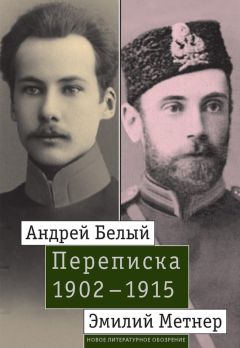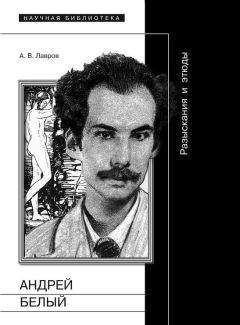Денис Шевчук - Английский язык: самоучитель
3. Put these documents into the box, please.
..................................................................................................................
4. Take these books out of the box.
..................................................................................................................
5. We travel from France to Britain every week.
..................................................................................................................
6. Come into the room, Alice.
..................................................................................................................
7. Take our children out of the bath.
..................................................................................................................
8. We get home from the museum by bus.
..................................................................................................................
8. Complete the gaps with a suitable preposition taking it from the Box.
Вставьте пропущенные предлоги, взяв их из таблицы.
Out of, from, to, into, behind, in, on, under, at, with.
1. I can’t see my car in front of the house. Is it...........................the house?
2. I walk......................my children every day.
3. Take the presents................................this box, please.
4. They come home from work.......................... eight o’clock.
5. I like to call various people...........................the evening.
6. Go.....................your grandmother and help her carry luggage.
7. Put this luggage.............................the car, please.
8. Look.........................the bridge. Can you see it in the water?
9. Can you see a modern computer........................the table?
10. This shop is.........................the city centre.
9. Match the word combinations with their translations.
Найдите подходящий перевод.
Language focus 2Verbs and prepositions
Глаголы и предлоги
Look at – Смотретьна – Look at the table, look at the window
Look for – Искать (что-либо) – Look for a present, look for friends
Listen to – Слушатьчто-либо, кого-либо – Listen to your friends, listen to music
Speak to / with – Говоритьскем-либо – Speak to the boss, speak with him
Speak – Говорить (на языке) – Speak English, speak French
Show – Показыватькому-либо – Show me your cassette, show them their house
Meet – Встречатьсяскем-либо – Meet me in Paris, meet us there
Get up– Вставать (с кровати) – Get up at seven o’clock, get up in the morning
Get to – Добиратьсядочего-либо – Get to London, get to the museum
Travel to – Путешествоватькуда-либо – Travel to China, travel to the East
Work for (a company) – Работать (в компании) – Work for a big company, work for McHolland
Watch – Смотреть (что-либо) – Watch a TV show, watch a play
Play – Играть (во что-либо, намузыкальныхинструментах) – Play hockey, play football, play the guitar, play the piano
Give – Давать (кому-либо) – Give me your pen, give them the luggage
10. Write your own sentences with the verbs.
Напишите предложения с данными глаголами
Look at
Look for
Listen to
Speak to / with
Speak
Show
Meet
Get up
Get to
Travel to
Work for
Watch
Play
Give
FOCUS ON GRAMMAR
Активная грамматика
The Present Simple (Indefinite) Tense
Настоящее простое (неопределенное) время
Настоящее простое (неопределенное) время используется для выражения обычного, периодически повторяющегося действия. Наречия-определители: часто, всегда, никогда, каждый день, каждый год, каждый месяц, иногда. В русском переводе глагол стоит в настоящем времени. Например: Он обычно читает газету по утрам. Она никогда не завтракает.
Утвердительные предложения
В третьем лице единственного числа глагола – окончание «s» / «es». Во всех остальных формах глагол – без изменений.
Если глагол заканчивается на свистящий, шипящий звук, то в третьем лице единственного числа окончание «es», которое произносится [iz]. Также это относится к глаголам do и go, форма третьего лица единственного числа которых does (но произносится она [daz]) и goes [gouz].
Особую форму имеет глагол have. В третьем лице единственного числа используется форма has.
Если глагол заканчивается на «y» с предшествующей согласной, то y меняется на «i», и прибавляется окончание «es»: She carries (to carry). Но: She buys (to buy – перед y – гласная).
Например:
3 лицо единств. число
He watches TV every evening.
She does it every day.
She goes to school in the morning.
He lives in Moscow.
It has three legs.
My wife works for this company.
She copies this text every day.
Остальные формы
They watch TV every evening.
Their friends do it every day.
The children go to school in the morning.
I live in Moscow.
The tables have three legs.
We work for this company.
You copy this text every day.
Наречия-определители
Often – часто
Always – всегда
Never – никогда
Usually – обычно
Seldom – редко
Every year / day / month / week – каждый год / день / месяц / каждую неделю
Например:
She goes to work every day.
My brother seldom plays tennis.
My husband usually buys newspapers.
I never speak to them.
He always studies foreign languages.
We travel every month.
1. Write in the verbs in the correct form.
Напишите глаголы в правильной форме.
2. Read and translate the sentences. Pay attention to the forms of the verbs.
Прочитайте и переведите предложения. Обратите особое внимание на произношение окончаний глаголов.
1. She often relaxes in the evening. ...................................................................
2. David cooks dinner every day. ...................................................................
3. It has a big door. ...................................................................
4. Don buys new books every week. ...................................................................
5. She seldom goes to the city centre. ...................................................................
6. He never visits museums. ...................................................................
7. Sally often travels to the South. ...................................................................
8. They meet friends every morning. ...................................................................
9. I seldom watch modern shows. ...................................................................
10. He gets up at seven every day. ...................................................................
11. He always carries her luggage. ...................................................................
12. This receptionist never helps me. ...................................................................
13. We usually have lunch here. ...................................................................
14. She does it every year. ...................................................................
15. He usually goes to work at eight. ...................................................................
3. Complete the sentences. Pay attention to the forms of the verbs.
Закончитепредложения. Обратите особое внимание на написание окончаний глаголов.
Example: She often.....................................
She often cooks dinner.
1. He seldom.....................................................................................................
2. They never....................................................................................................
3. Pat usually....................................................................................................
4. Every year we................................................................................................
5. She................................................................................................every day.
6. It often........................................................................................................
7. My friends always...........................................................................................
8. Every month Cathy..........................................................................................
9. His wife often................................................................................................
10. I never........................................................................................................
4. There is one mistake in each sentence. Find and correct it.
Найдите ошибку в каждом из данных предложений.
1. She buies bananas every week. ................................
2. Their children goe to school every morning. ................................
3. She watchs TV every evening. ................................
4. Your sister relaxees every week. ................................
5. We cook often pizza. ................................
6. Ann go to work every day. ................................
7. My mother haves three children. ................................
8. He studys German at achool. ................................
5. Translate the sentences into English.
Переведите предложения на английский язык.
1. Он путешествует в Египет каждый год. ........................................................
2. Его дети редко ходят в музеи. ........................................................
3. Он всегда несет багаж своей жены. ........................................................
4. Я часто смотрю в окно по вечерам. ........................................................
5. Пэт изучает немецкий в школе. ........................................................
6. Он никогда не ходит на работу по утрам. ........................................................
7. Она любит искусство Востока. ........................................................
8. Он обычно добирается до центра города на машине (by car).........................................
9. Мы редко слушаем современную музыку. ........................................................
Language focus 2The Present Simple (Indefinite) Tense
General and Special Questions
Настоящее простое (неопределенное) время
Общие и специальные вопросы
Чтобы задать общий вопрос, используется вспомогательный глагол do или does в зависимости от лица. Для третьего лица единственного числа, где глагол имеет окончание «s» / «es», используется вспомогательный глагол does. В вопросе он как бы «съедает» окончание «s» и «es» глагола.
Например:
She plays tennis.
Does she play tennis? – Она играет в теннис?
He goes to work every day.
Does he go to work every day? – Он ходит на работу каждый день?
Для всех остальных лиц и чисел (где нет окончания «s» / «es») используется вспомогательный глагол do.
Например:
They often listen to modern music.
Do they often listen to modern music?
You travel every year.
Do you travel every year?
Для того чтобы дать краткий утвердительный ответ, используется соответствующий вспомогательный глагол do или does.
Do you travel every year? Yes, I do.
Does she like the museum? Yes, she does.
Для того чтобы дать отрицательный ответ, снова используется соответствующий вспомогательный глагол do или does.



